
Russian politician suggests US or UK could have obtained nerve toxin used to poison ex-spy
Russia has denied poisoning former double agent Sergei Skripal in Britain, and some in the UK are now also questioning whether the evidence is incontrovertible
A Russian lawmaker has claimed that the US and Britain could have obtained Novichok, the nerve toxin used to attack a former Russian double-agent in the UK earlier this month.
Britain has said that Sergei Skripal and his daughter Yulia were attacked with the Soviet-created nerve agent on March 4 by Russian agents. The pair both remain in hospital.
But on Thursday the deputy chairman of the foreign affairs committee in the lower house of the Russian parliament said that the poison could have been obtained by the US or UK in 1999, joining a chorus of doubting voices in both Russia and the UK.
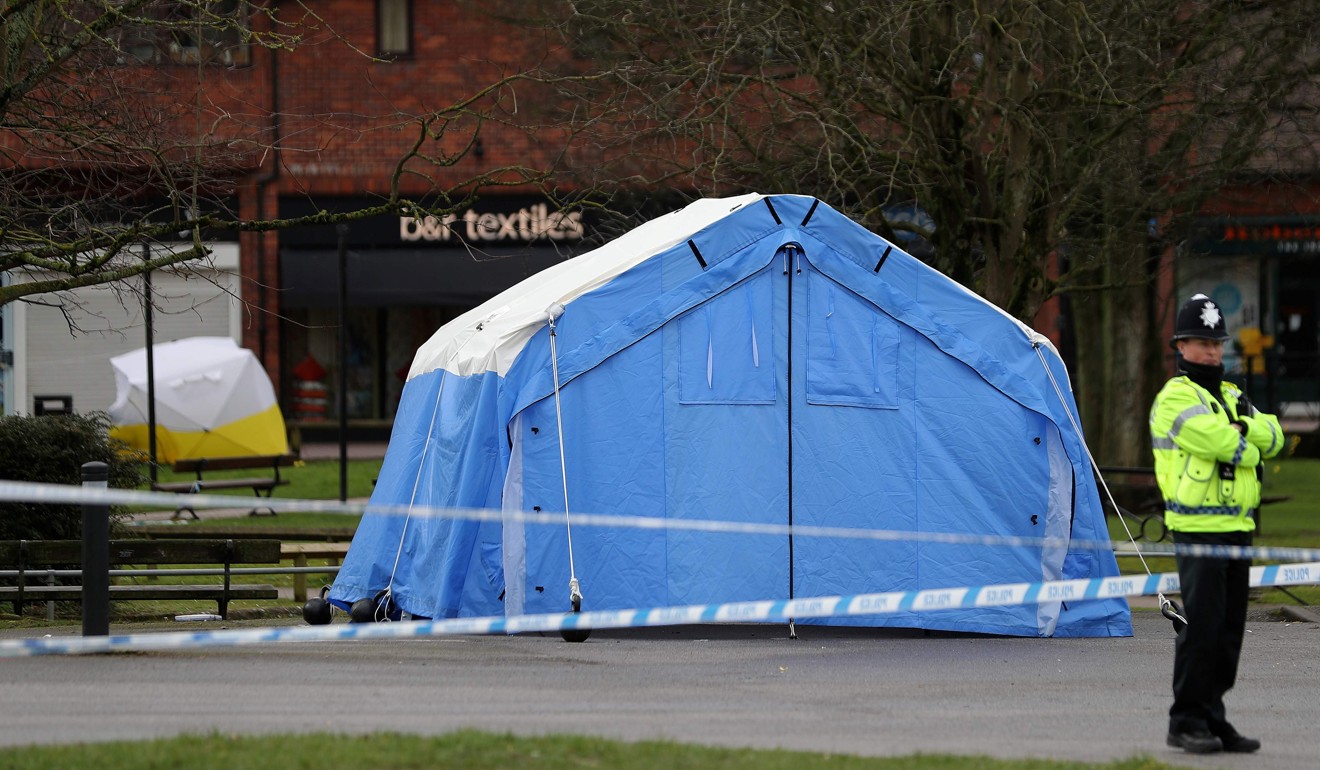
Lawmaker Alexei Chepa said on Thursday that the US was involved in cleaning up Nukus, an isolated city in the former Soviet republic of Uzbekistan where Novichok was purportedly used, in 1999.
That could have allowed the US to learn about the nerve agent, Chepa said.
“The Americans had access not only to the technology, but had access to its development. In all likelihood, their Nato partners from Britain also had this access.”
Chepa’s remarks may be unsurprising, given his position in the Russian government - but there are voices within the UK and US who have questioned whether Russia definitely poisoned Skripal.
Trump Org ‘dealt with Russian bank’ and is now under Mueller probe
Among them is Amy Smithson, a US-based biological and chemical weapons expert, who also asked whether US agents could have smuggled the toxin out of Nukus.
“I certainly wouldn’t rule that possibility out, especially a small amount and particularly in view of how lax the security was at Russian chemical facilities in the early 1990s.”
The former British ambassador to Uzbekistan, Craig Murray, who visited the site at Nukus, was openly sceptical about blaming Russia.
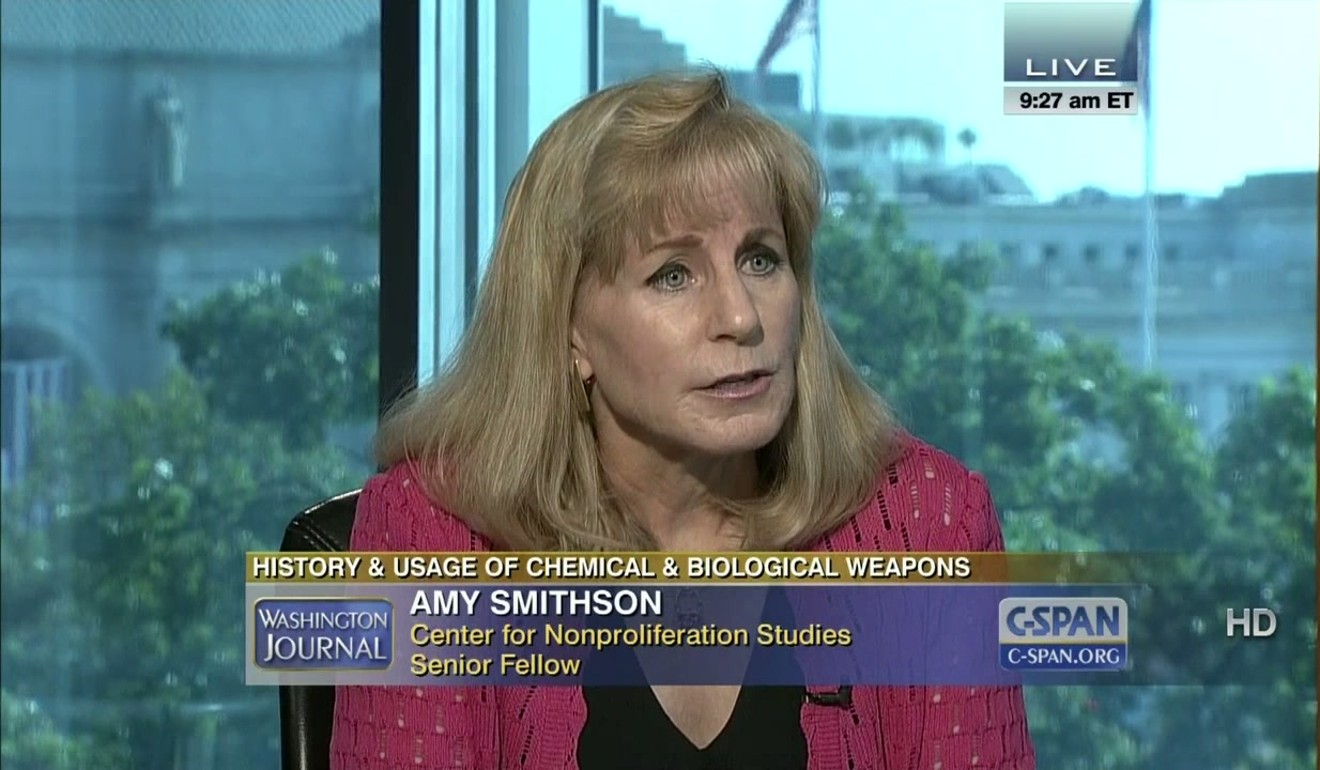
“The same people who assured you Saddam Hussein had WMDs now assure you Russian ‘novichok’ nerve agents are being wielded by Vladimir Putin to attack people on British soil,” he wrote in a blog post.
He also said in a phone interview that “There is no evidence it was Russia.”
“I am not ruling out that it could be Russia, though I don’t see the motive,” he said. “I want to see where the evidence lies. Anyone who expresses scepticism is seen as an enemy of the state.”
That’s an issue Jeremy Corbyn, leader of the UK’s opposition Labour Party, has encountered since he also questioned whether there was any evidence that Russia had indeed manufactured the toxin.
US sanctions Russians - and says country hacked its energy grid
Defying critics within his own party, he spoke on Thursday to call for a “calm, measured” approach to the investigation – and warn against the drift towards a “new cold war” with Russia.
Corbyn called Skripal’s attempted murder “horrific” but warned Members of Parliament not “To rush way ahead of the evidence being gathered by the police, in a fevered parliamentary atmosphere”, adding that it “serves neither justice nor our national security.”
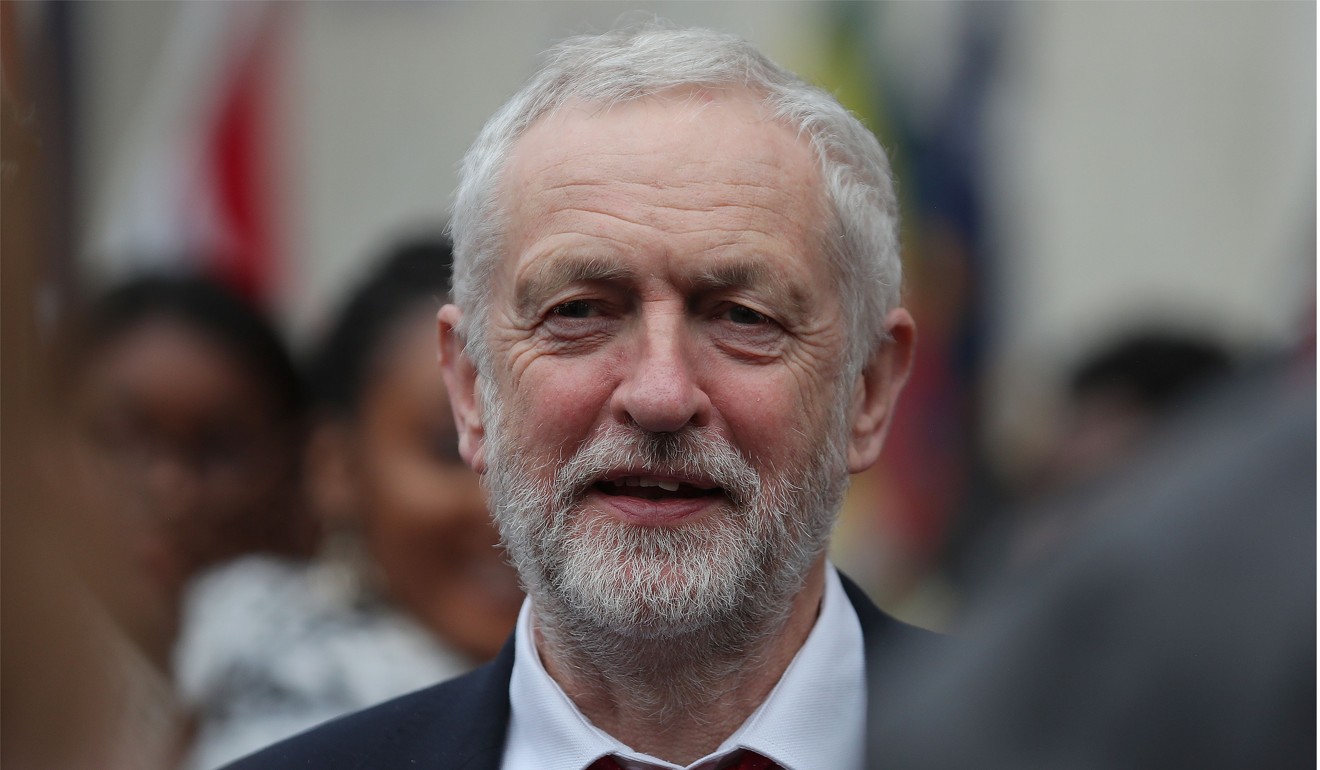
He added that the Labour party does not support Putin’s government’s “conservative authoritarianism, abuse of human rights or political and economic corruption”.
“However, that does not mean we should resign ourselves to a ‘new cold war’ of escalating arms spending, proxy conflicts across the globe and a McCarthyite intolerance of dissent.”
Corbyn also said he backed the removal form the UK of 23 Russian diplomats by Prime Minister Theresa May but that “measures to tackle [Russian] oligarchs and their loot [in the UK] would have a far greater impact on Russia’s elite than limited tit-for-tat expulsion”.
Spy poisoning: furious Russia threatens retaliation after UK expels diplomats
Chepa’s remarks about Nukus contradict comments made earlier in the day by Russian Deputy Foreign Minister Sergei Ryabkov, who told the Interfax news agency that neither Russia nor the Soviet Union had run a programme to develop the “Novichok” nerve gas.
“I want to state with all possible certainty that the Soviet Union or Russia had no programmes to develop a toxic agent called Novichok,” Ryabkov said.
He said the claim was made by people who moved to the West; he could have been referring to the fact that Novichok is a nickname, not an official name, for the nerve agent.
He also reaffirmed that Russia completed the destruction of its chemical weapons stockpiles last year, adding that the US is yet to dismantle its stockpiles.
Britain remains unmoved by the protestations of innocence, however, and has called on Nato for support.
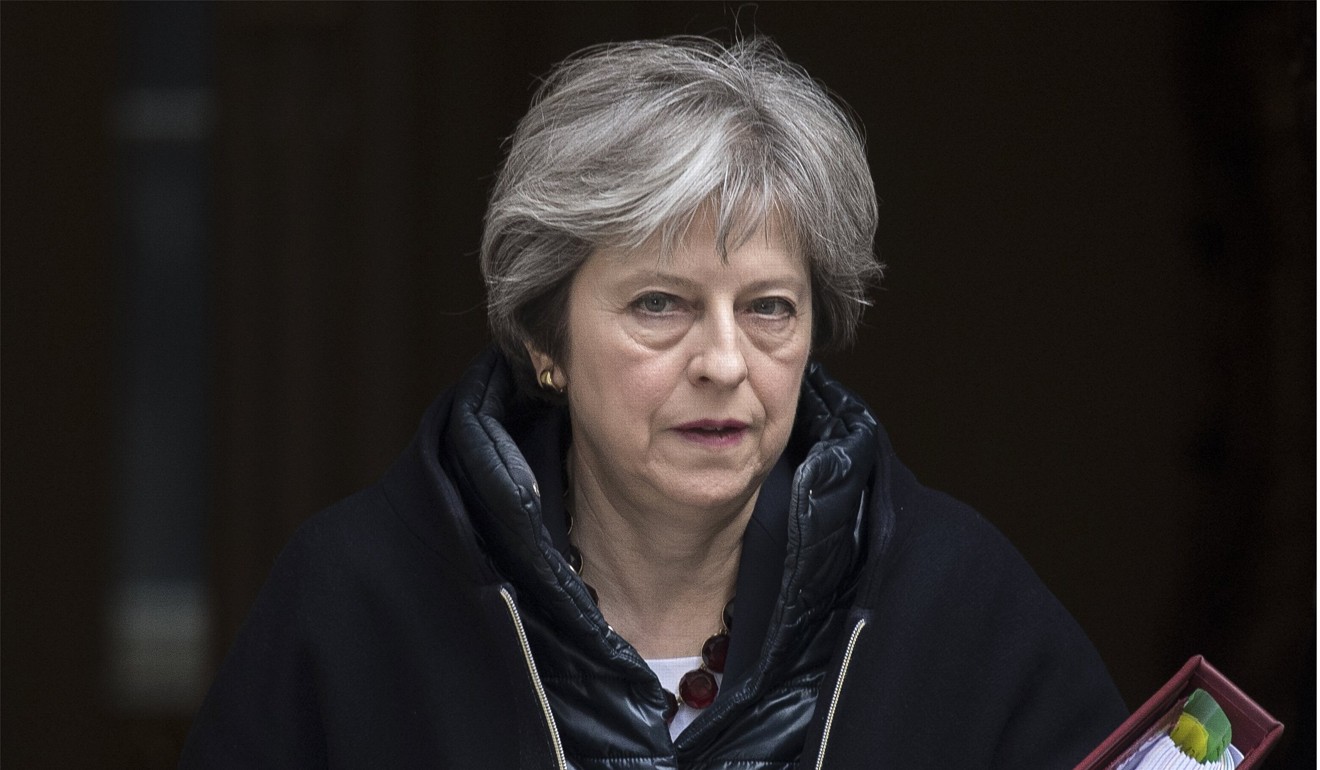
The UK’s national security adviser, Mark Sedwill, told the Western Nato alliance on Thursday that the nerve agent attack on a Russian double agent was an issue for all 29 allies and blamed Moscow for the attempted murder.
“What happened in Salisbury was the latest in a clear pattern of reckless and unlawful behaviour by the Russian state, and concerns the whole alliance,” he said in a statement to reporters, referring to the English city where Skripal was poisoned.
“We will support allies who face similar threats,” he added.
When UK and Russia brawled over spies in 1985, it gutted their embassies
Nato Secretary-General Jens Stoltenberg has already sided with the UK, telling reporters earlier on Thursday that the poisoning was part of an ongoing attempt by Russia to destabilise the West, along with election interference and hacking.
Stoltenberg told reporters the use of the Novichok nerve agent “happened against a backdrop of a reckless pattern of Russian behaviour over many years”.
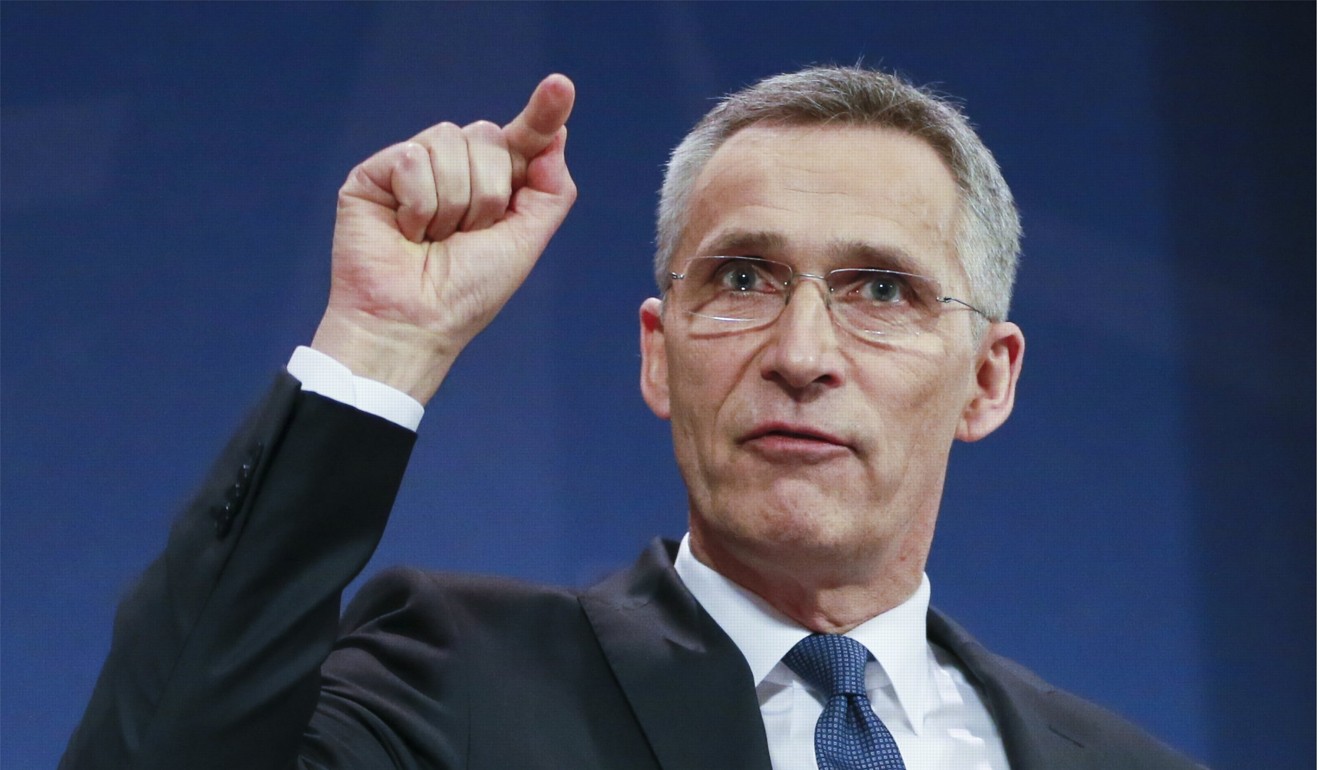
He also accused Moscow of a “blurring of the line between peace, crisis and war”, which he said was “destabilising and dangerous”.
While Stoltenberg stressed there had been no request from London to activate the Western military alliance’s mutual defence clause, he said Russia must be deterred.
“The UK will respond and is responding in a proportionate and measured way ... I fully support there is a need for a response, because there must be consequences when we see actions like those in Salisbury,” he said.
Russia and Britain spar on Twitter as spy poisoning row intensifies
And speaking on behalf of the European Union, Bulgaria’s envoy to the Organisation for the Prohibition of Chemical Weapons (OPCW) in The Hague demanded that Russia own up to Novichok production.
“We support the call for a full and complete disclosure by the Russian Federation,” Krassimir Kostov said, representing the EU.
“We call on the Russian Federation to respond swiftly to the British government’s legitimate questions and to cooperate with the OPCW.”
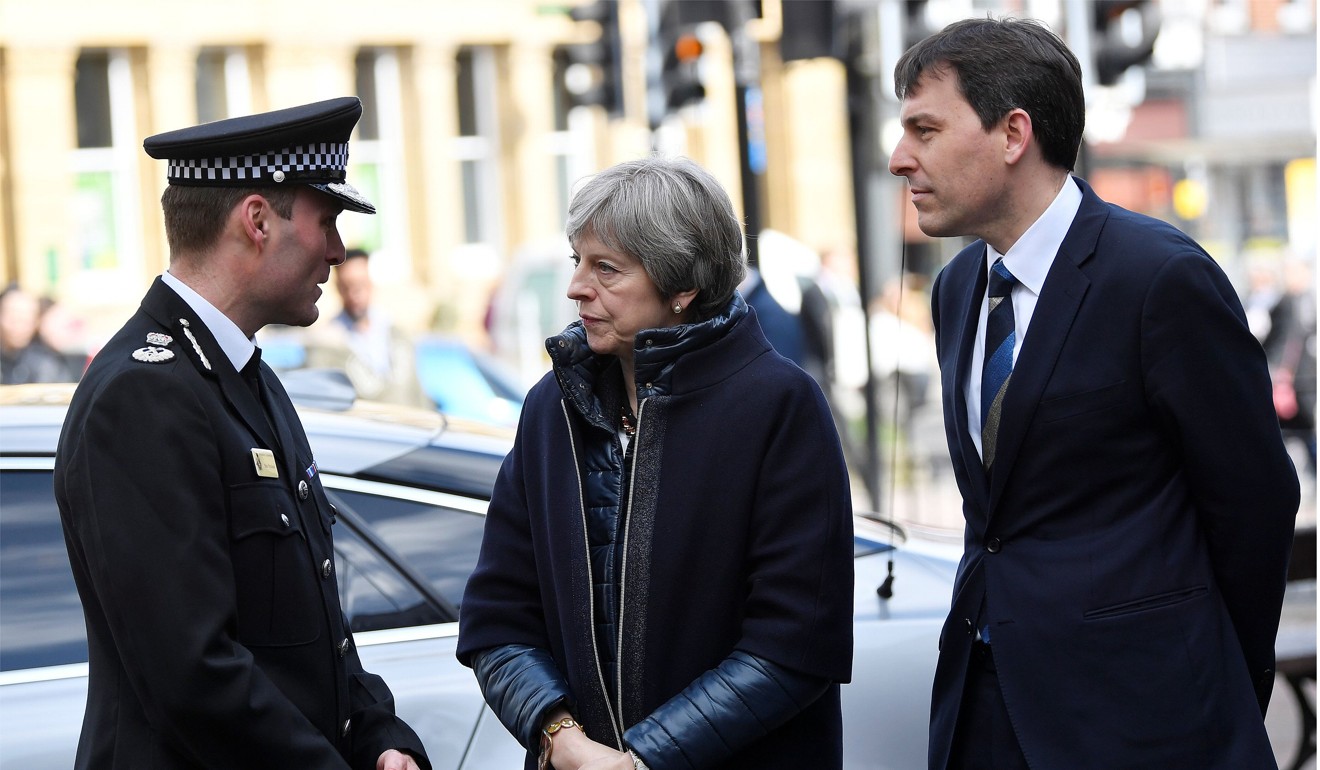
Russia’s remarks will also do little to persuade Britain, which has gained support from Germany, the US and – after a little reticence – France.
On Thursday, all three countries released a joint statement in which they condemned the poisoning of Russian ex-spy Sergei Skripal and his daughter, purportedly with the Soviet-designed nerve agent, on March 4.
The statement, issued by Downing Street, said: “The United Kingdom briefed thoroughly its allies that it was highly likely that Russia was responsible for the attack.
“We share the UK assessment that there is no plausible alternative explanation, and note that Russia's failure to address the legitimate request by the UK government further underlines its responsibility.
“We call on Russia to address all questions related to the attack in Salisbury.”
Also on Thursday, US President Donald Trump told reported that “it looks like” Russia poisoned Skripal, and that the US was taking the matter “very seriously” and was “in deep discussions” with the UK.
He added: “It’s something that should never, ever happen.”
Speaking to BBC News on Thursday, UK Foreign Secretary Boris Johnson said that Britain remains convinced that Russia is culpable.
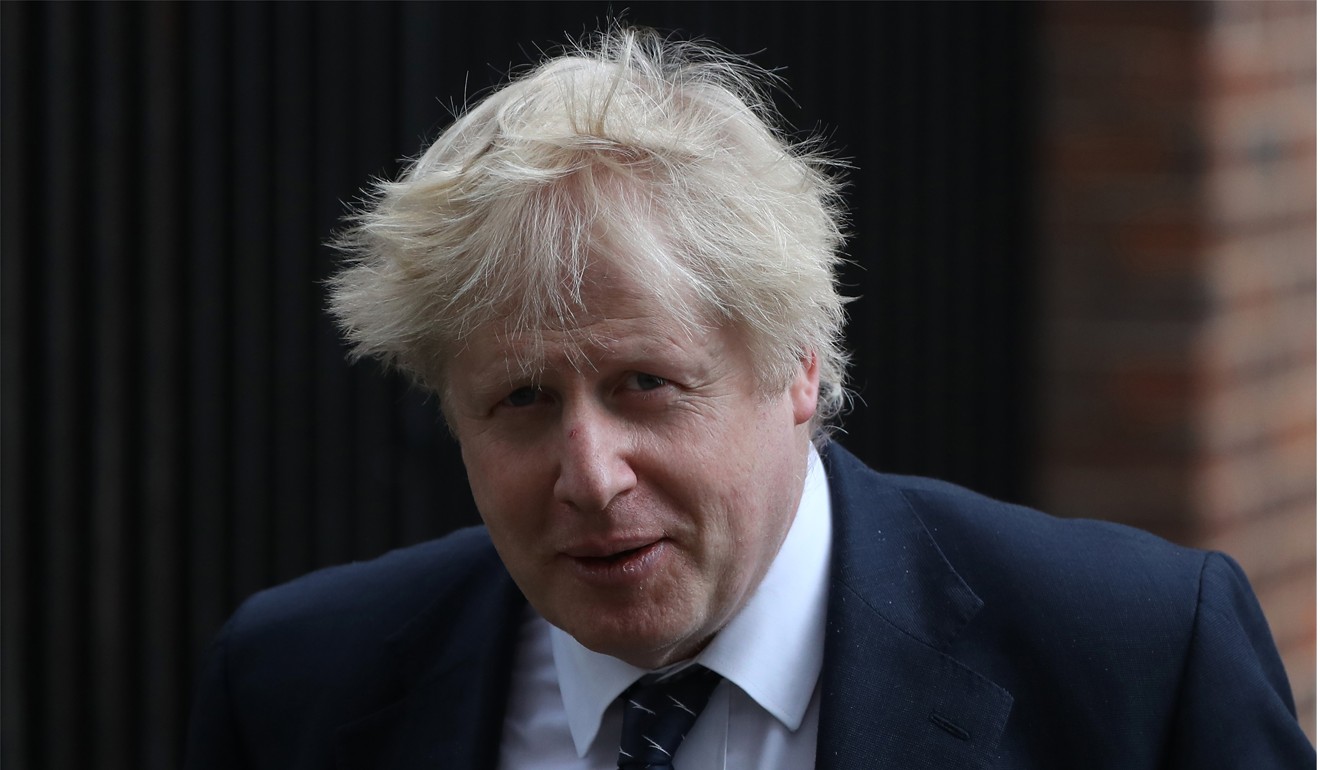
“Russia is the only country known to have developed this type of agent,” he said. “I’m afraid the evidence is overwhelming that it is Russia.”
Johnson’s comments came one day after Britain announced that it would expel 23 diplomats and suspend high-level contacts with Russia, with other measures to follow.
That led to a verbal rebuke from President Vladimir Putin’s spokesman, Dmitry Peskov, on Thursday. He told journalists that “The position of the British side appears to us absolutely irresponsible.”
He said retaliatory steps would soon follow, with Putin likely to chose the option that “most suits Russia’s interests.”
Peskov reiterated Moscow’s position that Britain’s accusations were unfounded and that the attack on Skripal had “all the signs of a provocation.”
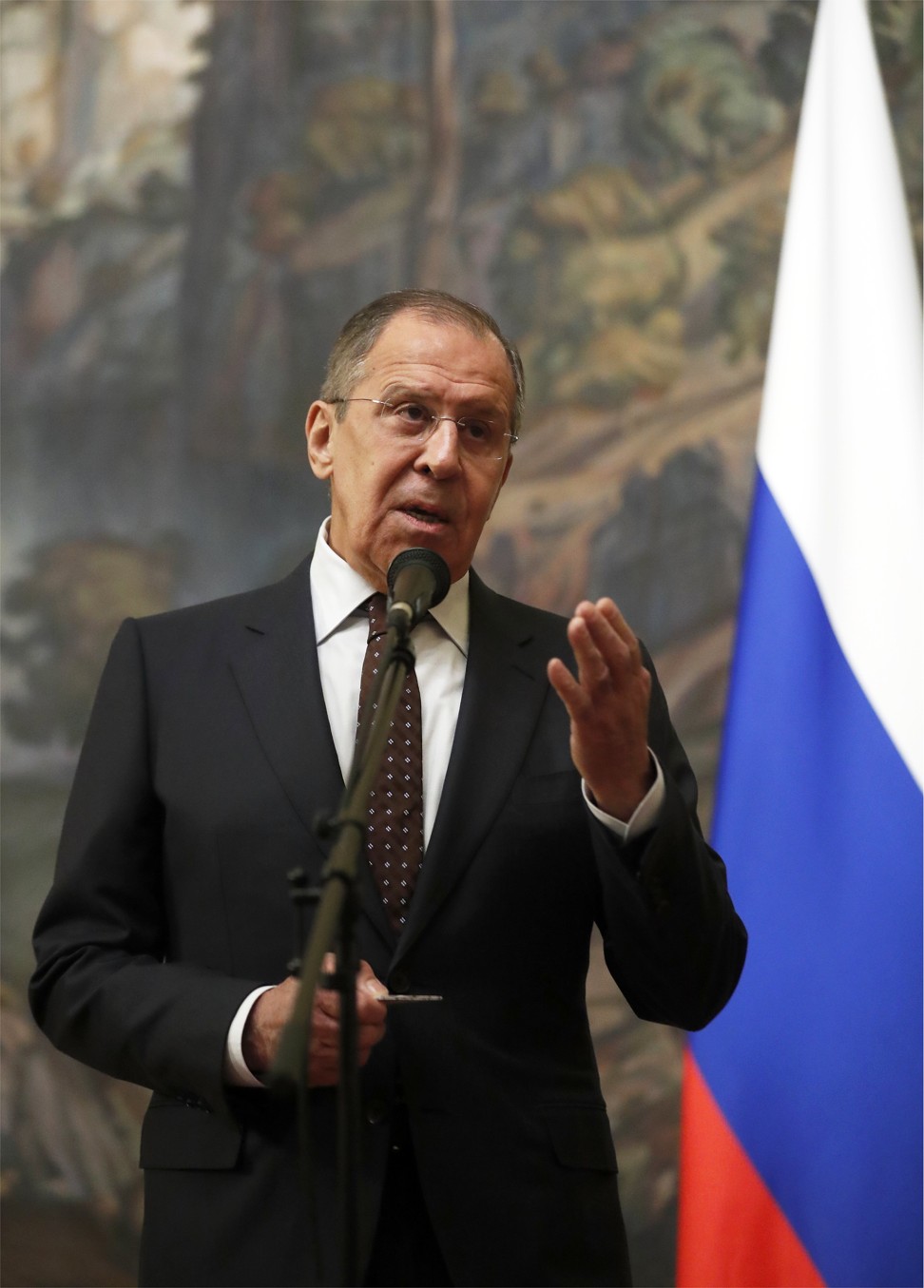
“The accusations are not backed up by anything and have been voiced before any information about the used substance could appear,” Peskov said.
Britain has refused to give samples of the agent to Russia, but Johnson confirmed it would give them to the international Organisation for the Prohibition of Chemical Weapons.
He added that Russia’s denials were proof of their guilt.
“There is something in the kind of smug, sarcastic response that we’ve heard that indicates their fundamental guilt,” he said. “They want to simultaneously deny it, yet at the same time to glory in it.”
Johnson continued: “There is very little doubt in people’s minds that this is a signature act by the Russia state – deliberately using Novichok, a nerve agent developed by Russia to punish a Russian defector as they would see it, and in the run up to Vladimir Putin’s election.
“This was a former Russian agent living in this country who had been singled out already by the Russian state as an object for revenge and retaliation, and Vladimir Putin has been on the TV only recently saying that such people deserve to be poisoned, to choke on their own 30 pieces of silver.
“This is a way of showing look at what happens to people who stand up to our regime.”
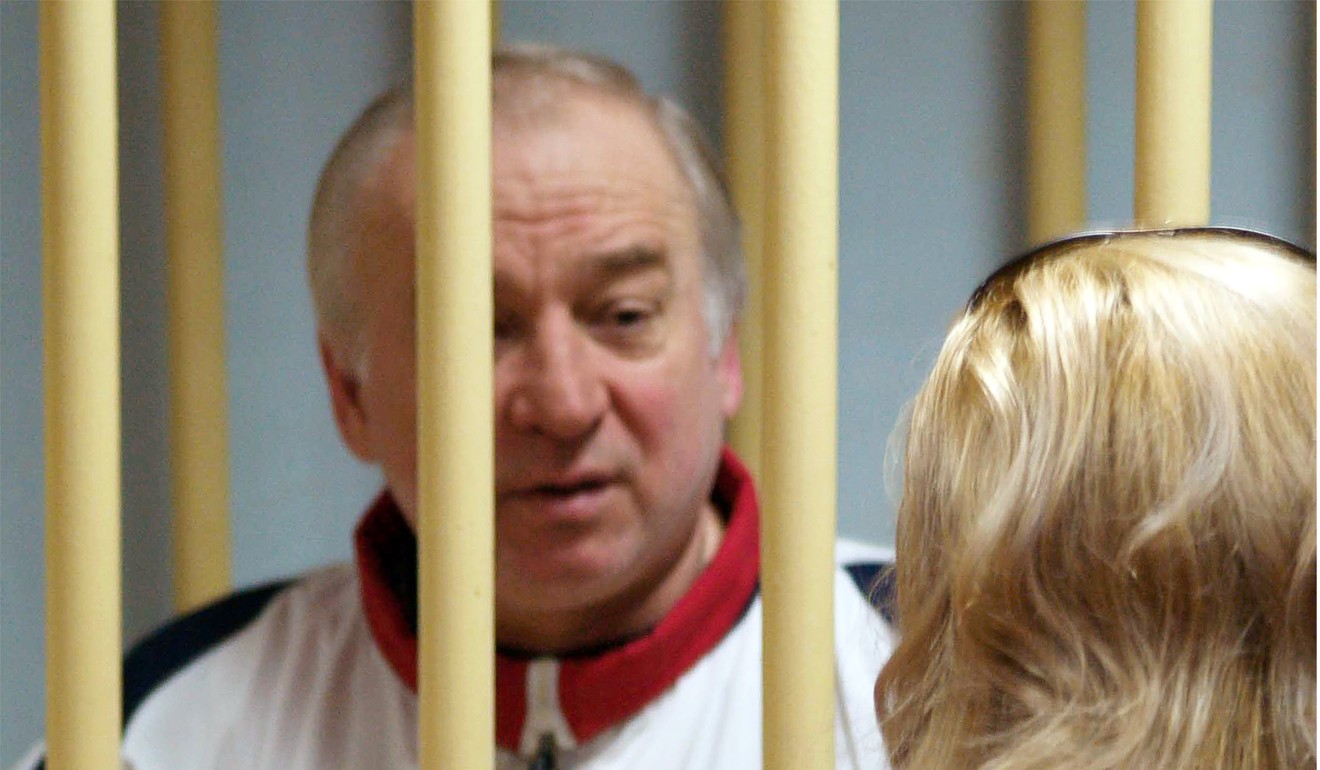
Johnson said he had been “very heartened” by the strength of the support around the world for Britain’s stance against Russia.
On Wednesday a spokesman for the French president, Emmanuel Macron, cautioned the UK not to engage in “fantasy politics”.
But on Thursday after holding talks with Theresa May on the incident, Macron shifted stance, saying France shared the UK’s conclusion that there was “no other plausible explanation” other than the involvement of Russia.
The Elysée Palace said the UK had “kept France closely informed of the clues gathered by British investigators” as well as the “evidence demonstrating the responsibility of Russia in the attack”.
France “accepts this conclusion” and “expresses its full solidarity with its ally”, the statement said.
The US ambassador to the United Nations, Nikki Haley, also gave unambiguous support to the UK at the Security Council.
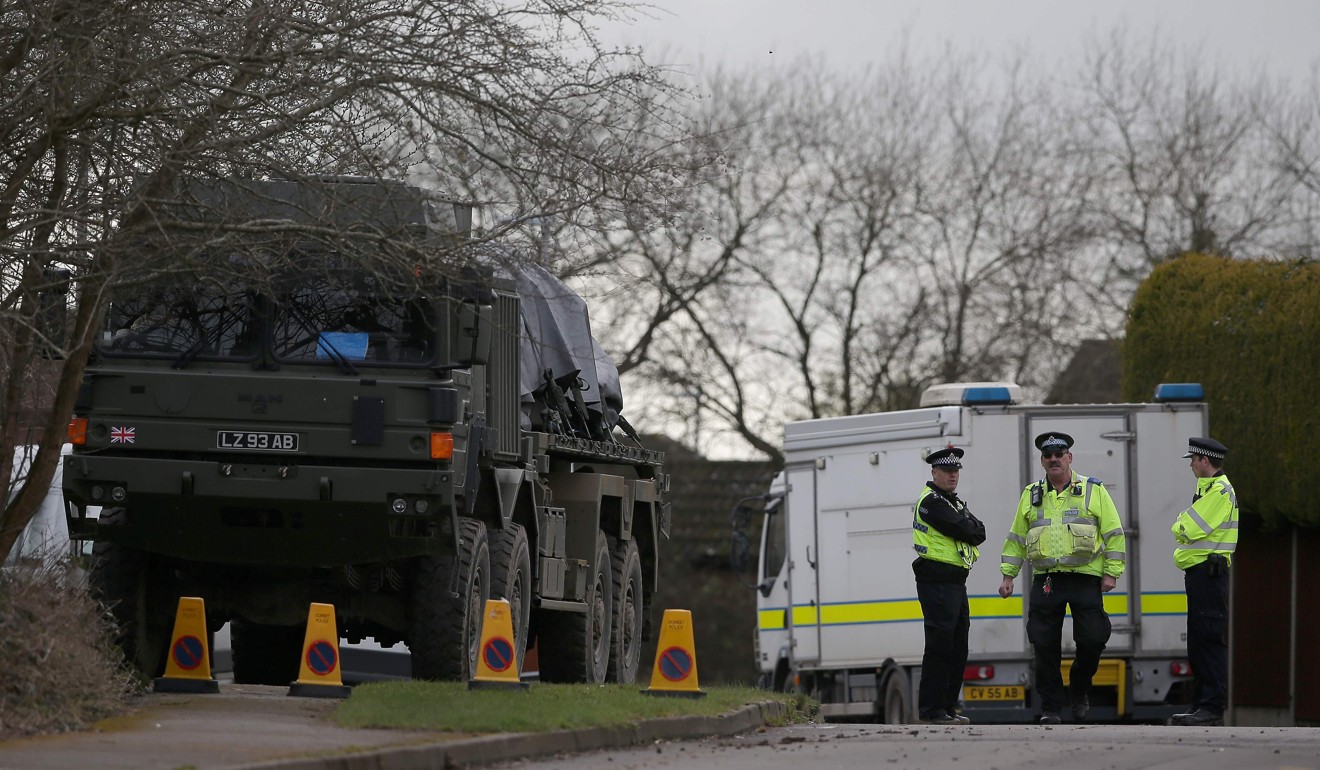
Pressed repeatedly on BBC Radio 4’s Today programme about earlier French scepticism about the UK’s claims, Johnson said: “President Macron has issued a very strong statement of condemnation.
“Different French spokespeople were saying different things.”
Johnson also confirmed the UK would provide samples of the nerve agent used in the attack to the Organisation for the Prohibition of Chemical Weapons.
He said: “We have been entirely in conformity with OPCW procedures … We will be submitting a sample so that they can look at the Novichok and make their own assessment. We believe the evidence is absolutely overwhelming.”

.png?itok=arIb17P0)


